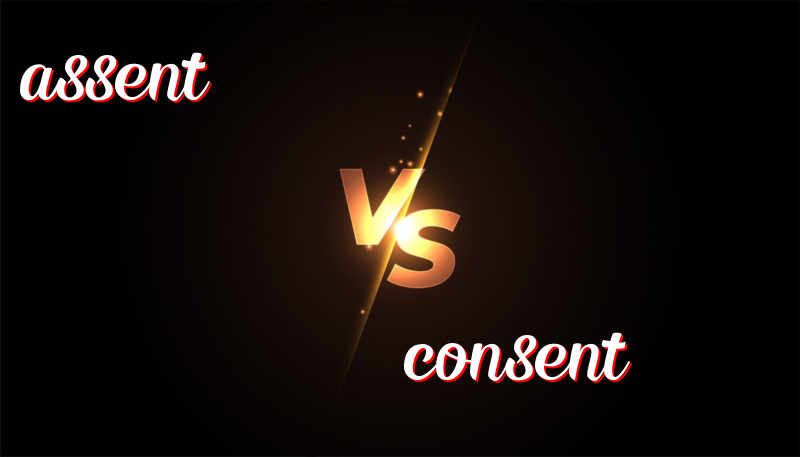Understanding the Distinction Between Assent and Consent
Assent vs. Consent
Sometimes, words in English can seem the same but mean different things. Two such words are “assent” and “consent.” Let’s find out what makes them different.
History of the Words
Assent: The word “assent” comes from Latin. It started with the Latin word “assentire,” which means “to agree.” Over time, it became part of the English language.
Consent: “Consent” also has Latin roots. It comes from “consentire,” which means “to feel together.” This word also became part of English over time.
How to Use Them
Assent: “Assent” means to agree to something, usually by saying “yes” or nodding. It’s often used in situations where you are accepting an idea or suggestion.
- She gave her assent to the plan by nodding her head.
- His assent was needed before the group could proceed.
- The teacher asked for assent before starting the project.
- He nodded in assent when the idea was suggested.
- The committee finally expressed their assent.
Consent: “Consent” means agreeing to let something happen or agreeing to do something. It is more about giving permission.
- She asked for his consent before using his phone.
- The doctor needed the patient’s consent for the operation.
- He did it with her consent.
- Parental consent is required for the field trip.
- You need to get their consent before joining the club.
Trick to Remember the Difference
Think of “assent” as saying “yes” or nodding to an idea. “Consent” is letting or allowing something to happen. “Consent” often involves permission or approval.
Summary
While both words mean agreeing, “assent” is about agreeing to a suggestion or idea, whereas “consent” involves permission or allowing something to happen. Remember, “assent” is like saying “yes,” while “consent” is about giving permission.

Leave a Reply
You must be logged in to post a comment.